Double concentrated tomato paste is the same tomato paste but with less water content which will make its flavor stronger and more powerful. Any recipe involving tomato paste can take advantage of the double concentrated tomato paste but in a slightly lesser amount. Double concentrated tomato paste preserves all the characteristics of the regular tomato paste but offers a much stronger flavor and aroma. But we recommend not to change the amount you want to use in your recipe, just expect a stronger flavor from your dish. Double concentrated tomato paste is available in squeeze tubes, cans , and glass jars.
When it comes to making a dish from a recipe or making some sauce for the pizza you want to have for lunch or the pasta that you have for dinner, you can use the double concentrated tomato paste and it will give an unforgettable paste to your dishes or sauces. Even if you didn’t like the strong flavor double concentrated tomato leaves behind, you can add a little water to it and let it simmer on low heat for a few minutes and it will turn into regular tomato paste which then you can proceed to use in your recipes.
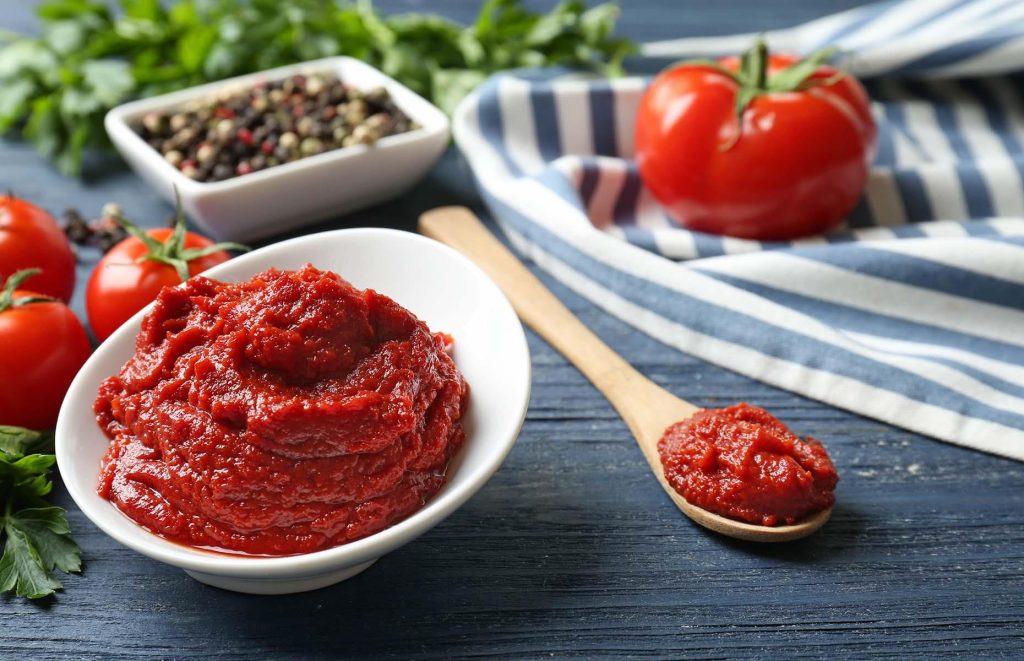
Tomato paste recipe pasta
Tomato paste
Tomato paste is used in this recipe. This sauce needs it. Diced tomatoes work, but the sauce consistency is different. Tomato paste thickness varies by brand and season. 1/4 cup of water starts the sauce. Add water to a thick sauce.
Cooking thickens the sauce. Start the sauce thinner than you want it finished.
Onions and Garlic
The sauce is flavored with onions and garlic. One medium onion and 3–5 garlic cloves. Yes. True. 3–5 cloves. Why range? Use additional tiny cloves.
This sauce is thick. Onions provide constancy. They’re chopped. You have three possibilities for the silky sauce:
Finely dice onions.
Food processor-chop onions until they’re virtually a paste.
After cooking, puree the sauce.
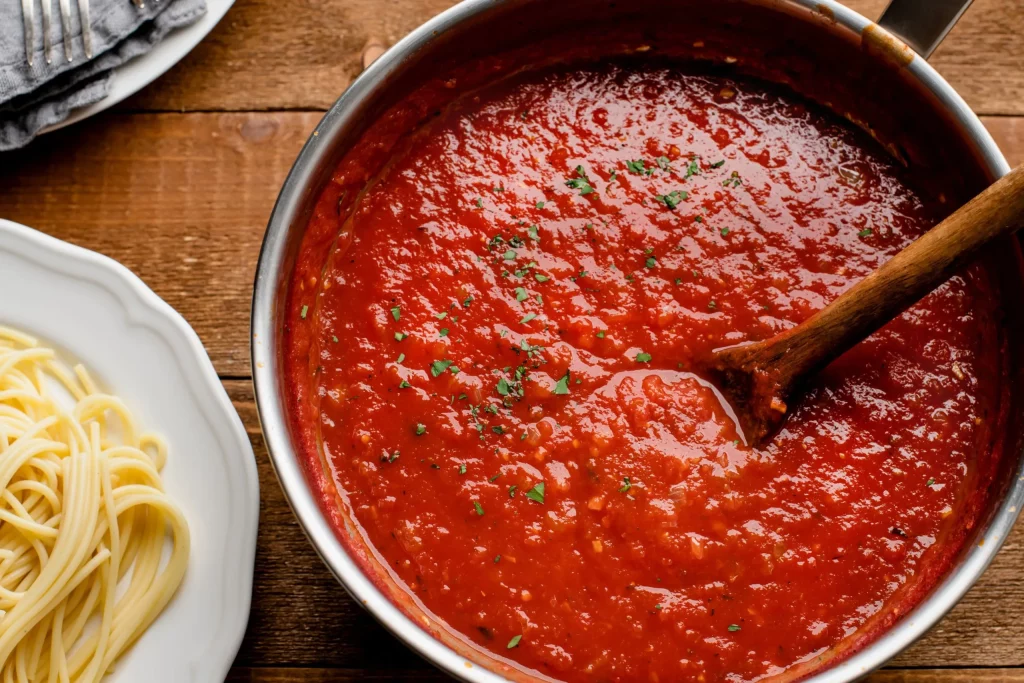
Ingredients:
- 2 tablespoons olive oil
- 1 medium onion finely diced
- 3-5 cloves of garlic minced or put through a garlic press
- 2 teaspoons dried basil
- pinch red pepper flakes about 1/4 teaspoon
- 1/2 teaspoon Kosher salt
- 1/2 teaspoon granulated sugar
- 1 pat butter, about 2 teaspoons
- 24 ounce tomato paste
- 1/4 cup water
Instructions:
Olive oil should shimmer when heated. Stir onions constantly for 3 minutes until tender and shiny. Cooking onions should sizzle and hiss. Garlic. Mix. This avoids burning. Two minutes more. Basil, red pepper, salt, and sugar. Mix. Butter. Stir for 1 minute.
Add half of the tomato paste. Remove sticky parts from the pan. Low-heat. Add tomato paste. 1/4 cup water. Too thick sauce? Add water.
Let it simmer for 10 minutes up to an hour. If cooking for a while, Stir the sauce occasionally and add water as required.
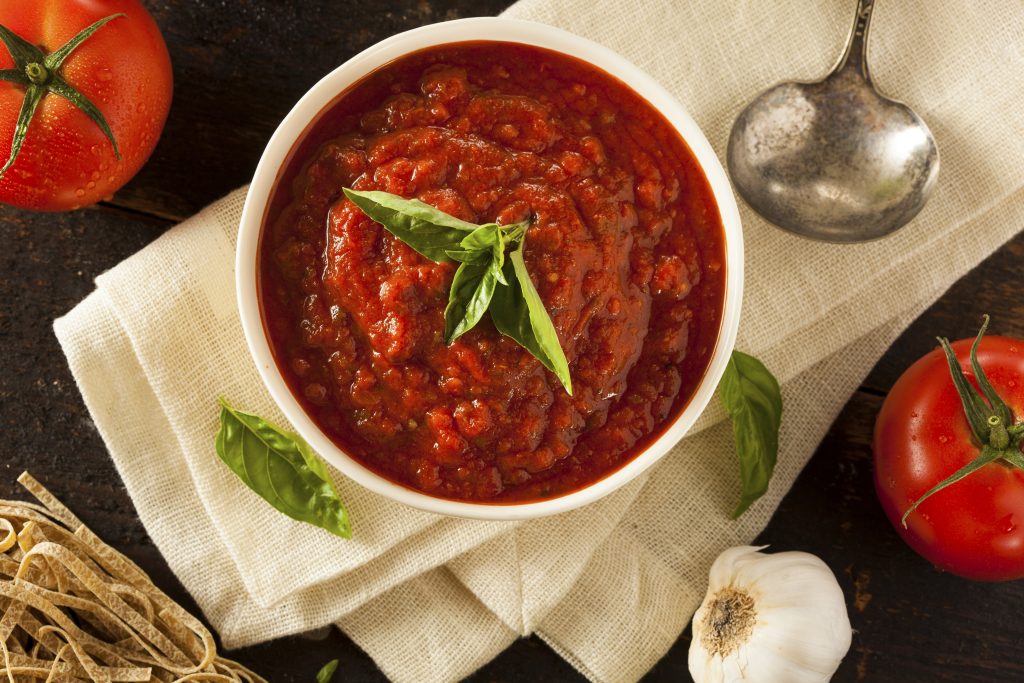
Italian tomato paste recipe
When the tomatoes arrive in Sicily, they produce estratto, which literally translates to “extracted.” They take the tomatoes, remove the puree, salt them, and then spread it out in the sun on a wooden board or table. With the use of a spatula, the puree is repeatedly spread out and flipped until ultimately the puree has lost all of its liquid. Normally, this takes two days. What’s left over is estratto, a thick, black paste. After being placed in jars, the estratto is then topped with salt and oil and kept in the refrigerator, where it may truly last for up to a year.
Ingredients:
6-7 pounds of diced tomatoes
Olive oil, 1/4 cup
3 garlic cloves, peeled and crushed
2 kosher or sea salt bay leaves
Instructions:
The oven should be heated to 300 degrees.

In a large saucepan, combine the tomatoes, olive oil, garlic, bay leaves, and two generous pinches of sea salt. Cook for about 10 minutes, or until the tomatoes have softened. Over a big bowl, place a food mill. Batch-transfer the contents of the saucepan to the food processor, then pulse the food processor’s handle repeatedly in one direction and again in the other direction to extract the tomato puree. Repeat this process until all of the tomatoes’ skins and seeds have been removed.
Put a little olive oil on a baking sheet pan. Place tomato puree on a baking sheet and bake. After 2 hours of cooking, spread the puree out and turn it over with a spatula. back to the oven After another hour of cooking, stir the purée once more. Cook for another hour or so, or until the purée has thickened and turned into a paste.
Puree should be chilled before storing in a little glass container in the fridge. If you’d like, you might drizzle it with some olive oil and sea salt. The duration is many months.
Easy tomato paste recipe
5 lbs. of tomatoes
Olive oil, 1/4 cup
1/tsp. salt
1 teaspoon dry herbs (Optional: try oregano or thyme)
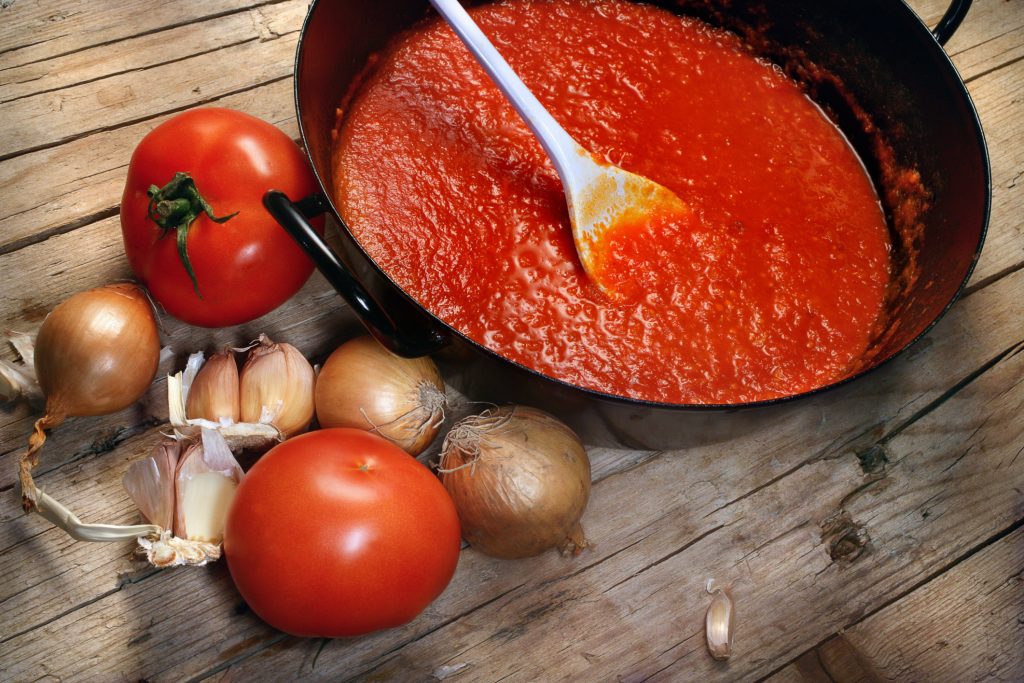
PREPARATION
The oven should be heated to 300 degrees.
After cleaning, split the tomatoes in half. To get rid of extra juice and seeds, gently squeeze each half over your sink or compost bin.
coarsely chop tomatoes that have been pressed.
Chopped tomatoes, salt, and any other herbs or spices should be added to a deep pan that is heating up with olive oil over medium heat.
After bringing the tomatoes to a boil, reduce the heat and let them simmer for approximately 15 minutes, or until they are tender.
Blend the tomatoes, including the skins and any seeds that weren’t squeezed out, at high speed until completely pureed.
Pour the tomato puree onto a deep, rimmed baking sheet that has been lightly greased with olive oil. A deep, 13″ x 18″ rimmed baking sheet should just contain five pounds of tomatoes.
Utilizing a spatula to flip and mix the puree occasionally while it cooks, slowly bakes the puree. The edges of the puree will begin to darken as the water evaporates; watch for this darkening as a signal that it’s time to stir the puree and spread it out evenly again as it thickens.
For tomato paste to thoroughly cook, it might take three to four hours (oven temperatures can vary). Turn the oven down by 50 degrees if you see that the edges are burning rather than browning. (NOTE: Using a smaller baking pan will result in a denser layer of tomatoes and less surface area available for evaporation; your cooking time will be greatly increased.)
The tomato paste is finished when it becomes thick and brick-colored.
For longer shelf life, top your tomato paste with an olive oil coating and store it in the refrigerator for several weeks in a sealed container. Additionally, tomato paste may be frozen for six months in small, separate containers (take out what you need and let thaw in the refrigerator).
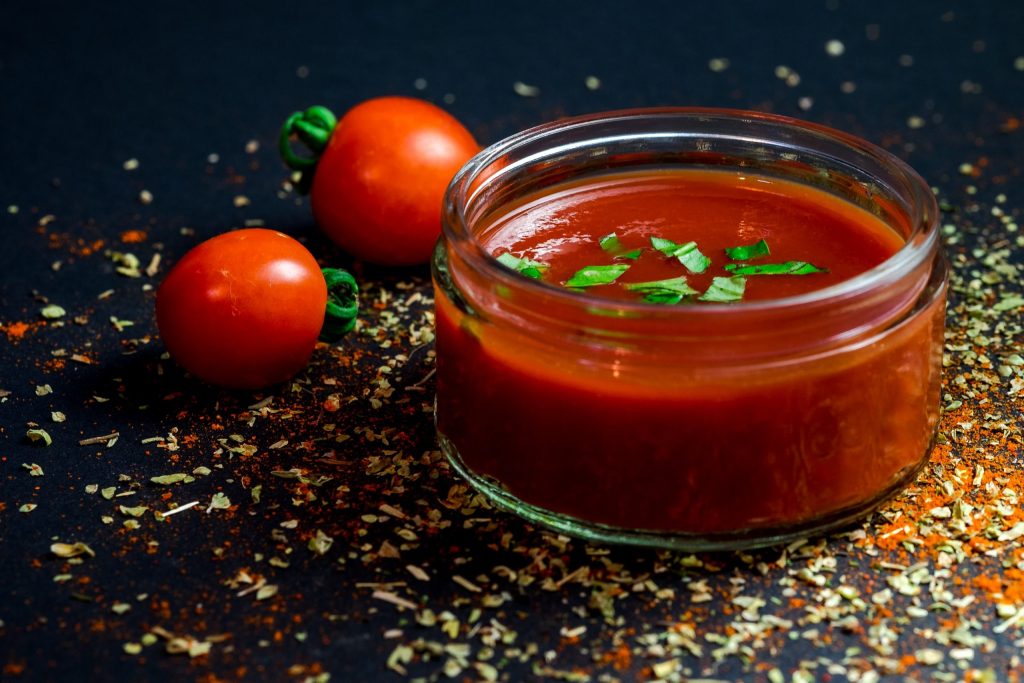
Ball tomato paste recipe
Heirloom tomatoes are cultivated for flavor, whereas normal tomatoes are produced for appearance and sized according to size. Most tomato uses, including cutting, slicing, and cooking, call for round or plum tomatoes. They make ordering food or goods easier because they are proportioned and graded. You know how many cases to order if your dinner will be attended by 500 people.
The tomatoes that your grandma and great grandmother most likely ate are heirlooms, which have an appearance that only a mother could like. When ripe, their thin skin is velvety to the touch and has color striations, splits, or fissures in certain instances. They are lumpy as well. They come in a rainbow of hues and sizes, including those with green stripes, brown to black tones, brilliant yellow and orange, and any combination of hues in between.
They are tasty and juicy, but their taste is what sets them apart.
Ball tomatoes or Eva purple ball tomatoes are a breed of heirloom tomatoes. Eva Purple Ball tomatoes are heritage varieties that are sweet, soft, and juicy. They are thought to have originated in Germany’s Black Forest, most likely in the late 1800s. The spherical, smooth fruit from Eva Purple Ball tomato plants has cherry red flesh and a delicious flavor. Even in hot, humid areas, these gorgeous, multipurpose tomatoes frequently exhibit disease resistance and are imperfection-free. Each tomato weighs 5 to 7 ounces when it is fully ripe (142-198 g.).
Now the tomato paste made with the heirloom tomatoes would have a much stronger flavor and taste but the recipe is the same.
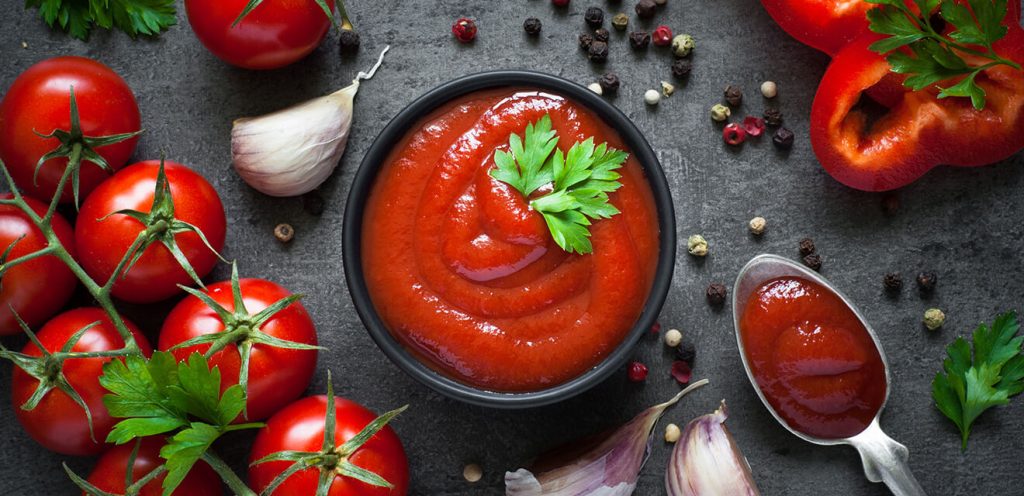
Double concentrated tomato paste recipe
Tomatoes: Because they are juicy and contain fewer seeds, Roma or plum tomatoes are the best. You have a sizable volume of paste at the end. On the other hand, because they are not as meaty, you need less tomato paste if you want to utilize fancy-looking heritage tomatoes. Additionally, they need more time in the oven so that their juice may evaporate. If you use heritage tomatoes, the color won’t be as red. That said, the flavor would be just as delicious. So, any sort of tomato can be used to produce tomato paste, but keep the aforementioned information in mind.
When preparing tomato paste, salt is mostly used as a preservative rather than for flavor. So salt quality is important. The finest possibilities are sea salt and kosher salt, but be sure they are both pure and devoid of additives. NEVER use table salt in your own tomato paste, just like when brining green olives. Table salt won’t serve as a preservative because it has additives.
Prepare the tomatoes first. The only thing you have to do is cut them in half or fourths, being sure to remove the stems. Batch-purée them in a food processor after adding the ingredients. After that, add kosher salt to the purée and transfer it to a big saucepan.
Cook it on the stove second. Uncovered, cook it over medium-high heat until the tomatoes start to boil and release juice. Boil continuously for 30 minutes. This will aid in the extra water evaporating. You will see foams on top in the meanwhile; use a spoon to remove them. Then, turn down the heat to medium-low, let the puree simmer for approximately 40 minutes, or until it reaches a consistency, and then let it cool.
Third, use a strainer to get rid of the skin and seeds. Put a sieve over a big bowl and do this. In the sieve, pour the tomato sauce. Use a spoon to press down the sauce until all that is left in the sieve are the seeds and skin. Refill the pot with the sauce.
Then, place the saucepan back over medium heat and simmer for 40–50 minutes, or until it thickens, now if you leave the paste to simmer for longer it will lose more moisture and water content and become thicker which will be called double concentrated tomato paste.
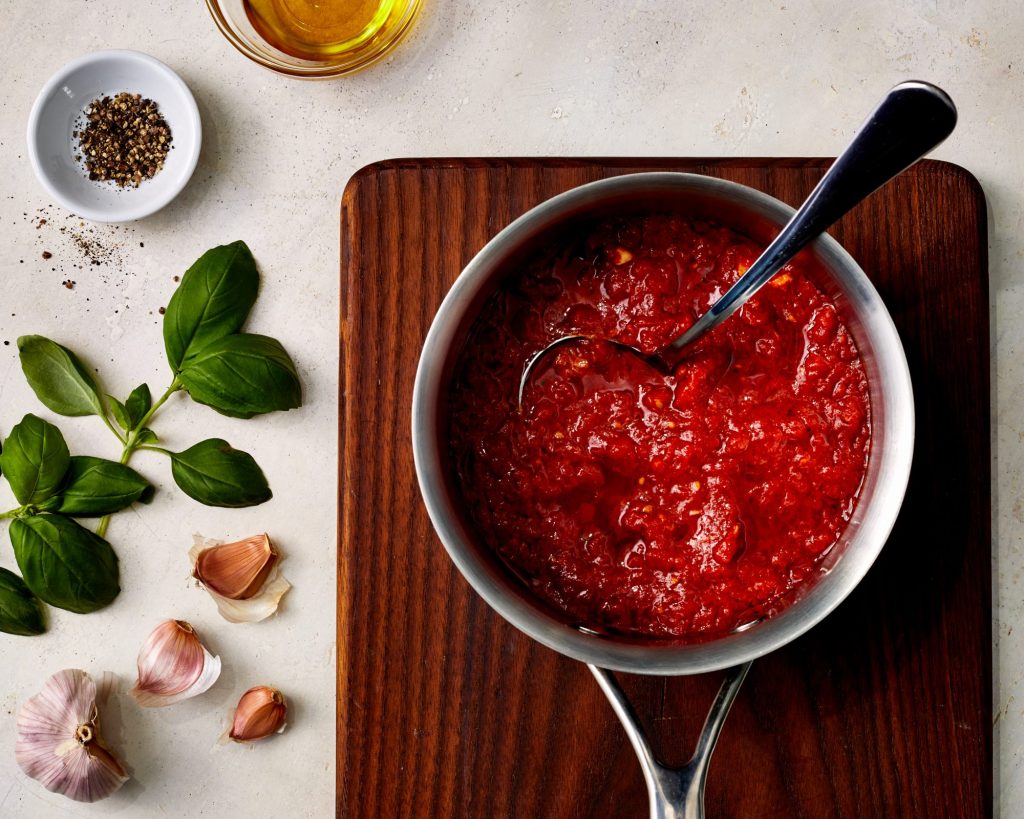
How to preserve tomato paste
Create little dollops with the remaining tomato paste using a tablespoon.
Put dollop-sized portions of tomato paste onto a shallow dish or container by using a measuring spoon. It is standard practice for me to line the pan with wax paper or freezer paper.
Put the blobs of tomato paste in the freezer until they become firm.
Place the dish in which the tomato paste lumps are located in the freezer and leave it there for at least a night, or until the lumps have solidified.
Place in a bag or other suitable container for long-term preservation in the freezer.
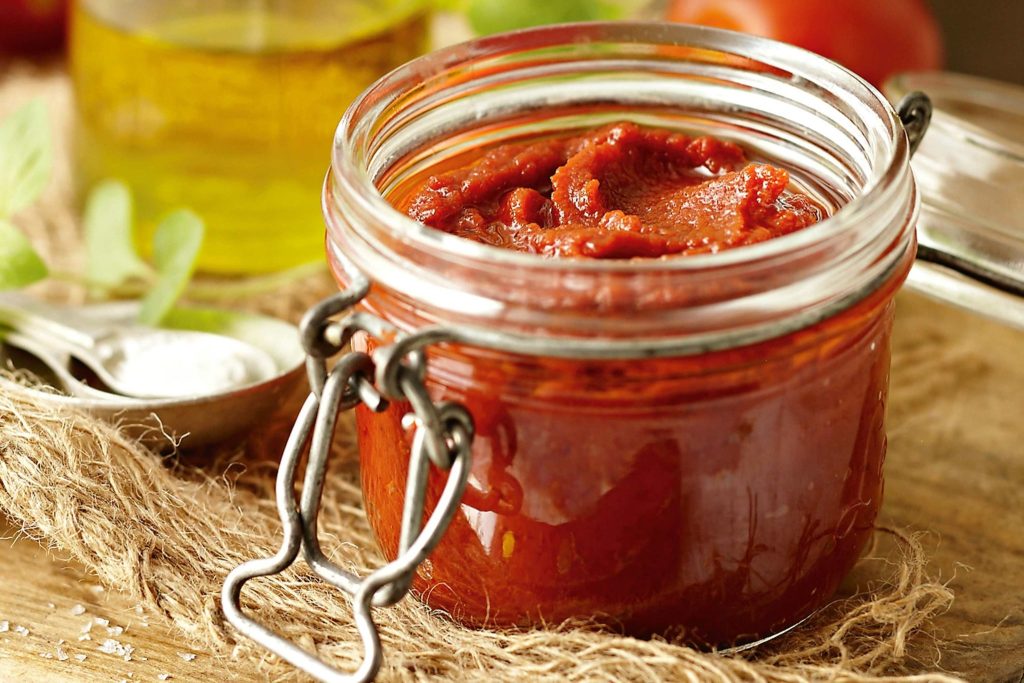
When the tomato paste has reached the point where it is securely frozen, take the lumps out of the pan and place them in a container or a bag suitable for long-term storage in the freezer.
The fact that I am constantly aware of the precise amount of tomato paste that is included within each lump is one of the things that I enjoy best about using this approach. I simply freeze it in dollops that are a tablespoon in size, making it simple to remove two or three teaspoons when needed for a recipe.
When it comes to a concentrated and preserved item such as tomato paste, I don’t have to worry as much about freezer burn or spoiling as I do with other ingredients. The tomato paste will keep for a long time in the freezer. When I have some spare, I just keep adding more tomato paste lumps to the container they are stored in. It will save time later on while you are cooking, and it will save that poor little can from wasting away helplessly in the refrigerator.
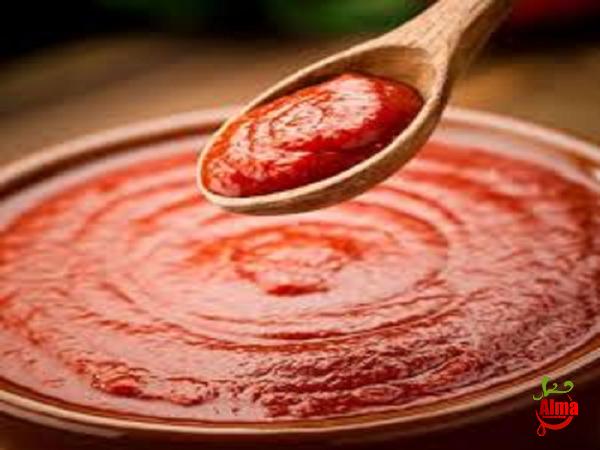
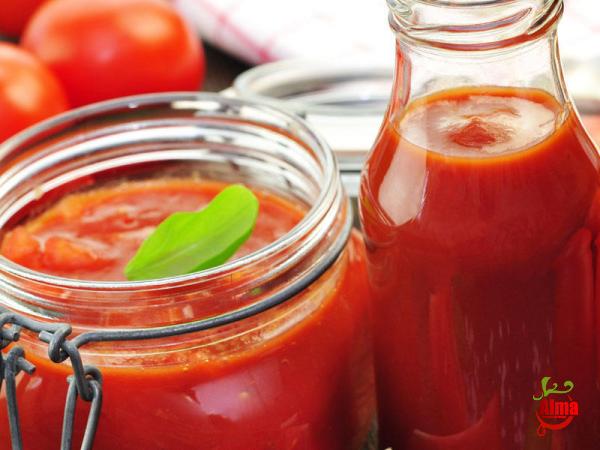
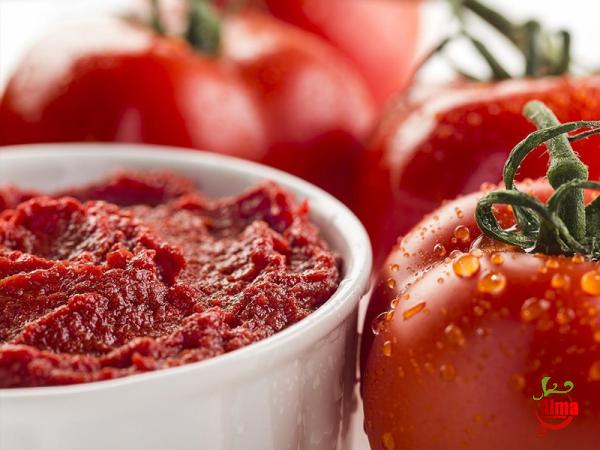
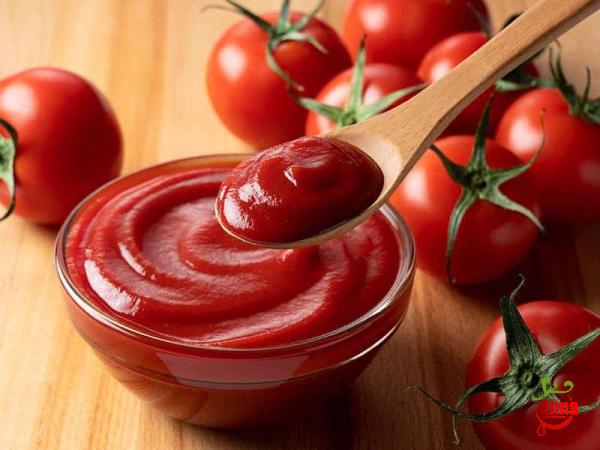



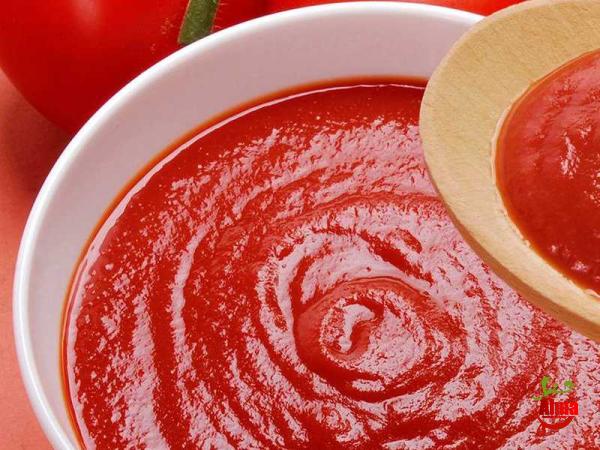
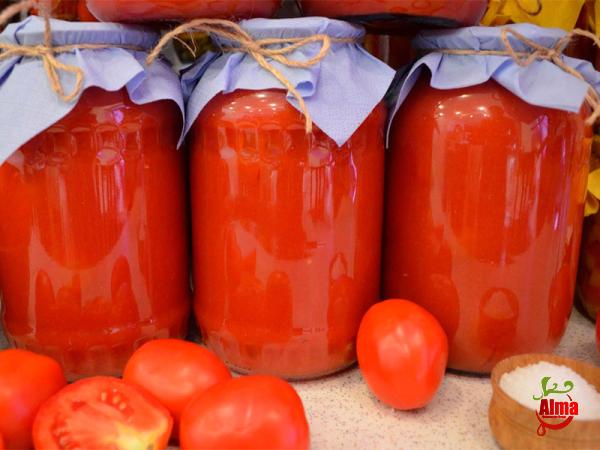
Your comment submitted.